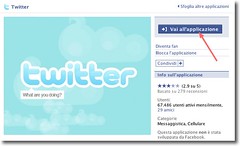Everyone I know has an email account. I obtained my first email account when I was studying law at Quinnipiac University in 1994. Back then, information wasn’t as ubiquitous as it is now. For instance, I heard about this thing called the internet and I owned a computer (an old ThinkPad) but there was little information as to how to get online. After a bit of investigation, I signed up for AOL. No, I did not respond to those AOL junk mailings. Did you?
Remember the sound of modems when connecting, Nirvana blasting via CD, the early 90’s. Anyway one of the first things that you do the first time you get online was to establish an email account. What we didn’t have to worry about then we have to worry about now: that a lawyer can obtain a court order to subpoena you email account.
The latest public figure to fall from prominence due to an indiscretion with the fairer sex is General Petraeus. How did he get brought down? Through Gmail. You need to be aware that traces of everything that you have ever written in an email will be around forever. Hitting delete is not enough.
| The Daily Show with Jon Stewart | Mon – Thurs 11p / 10c | |||
| Spyfall | ||||
|
||||
As a lawyer, one of the tools that I have in my legal arsenal is the ability to subpoena records. This is the way it works. Let’s say that you own a business and you have a contract to deliver services. You perform the services and now you are owed money. You worry that instead of paying you, the other party will declare bankruptcy while transferring your funds into an other business that he owns. The way to combat this is by commencing a lawsuit and then immediately make an Order to Show Cause to subpoena his Gmail account.
If you are behaving in a manner that you would like to be kept private, you should try another form of communication.





![Reblog this post [with Zemanta]](http://img.zemanta.com/reblog_e.png?x-id=dc3f8986-4cf2-453f-907e-11506e2db19b)

![Reblog this post [with Zemanta]](http://img.zemanta.com/reblog_e.png?x-id=f8eee97f-2279-45b1-8b91-a9900d372ef9)

![Reblog this post [with Zemanta]](http://img.zemanta.com/reblog_e.png?x-id=129ef576-a3e1-4ae4-881c-416b608a98f5)
